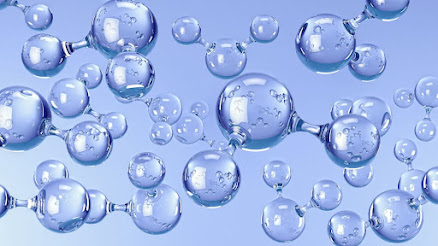Carbohydrates
Carbohydrates
Hydrocarbons
• Compounds that contain only carbon and hydrogen are called hydrocarbons.
• Carbon often forms nonpolar covalent bonds with hydrogen.
• We often use hydrocarbons in our daily life as fuels: Propane in a gas grill-
Butane in a lighter are both hydrocarbons.
• Methane (CH4) , the simplest hydrocarbon molecule, consists of a central carbon atom bonded to four hydrogen atoms.
What are Carbohydrates?
• Carbohydrates are organic compounds of carbon, hydrogen and oxygen.
• The general chemical formula of Carbohydrates is (CH2O)n or CnH2nOn
• Carbohydrates have a ring like structure.
• Most carbohydrates are hydrophilic and
soluble in water.
• Carbohydrates are found in living tissues and foods in the form of starch, cellulose, and sugars.
Carbohydrates Functions
1. Carbohydrates are used as a short-term energy source. Cells break down carbohydrates (glucose) to produce ATP energy molecules quickly.
2. Carbohydrates provide structural support to cells. They are a part of nucleic acids (RNA and DNA), cell membranes, and the cell walls of bacteria, fungi, and plants.
Carbohydrates Monomers
Monosaccharides are the monomers of carbohydrates and are often referred to as “the simple sugars”
Types of carbohydrates
Why do we need to eat carbohydrates?
Foods high in carbohydrates are an important part of a healthy diet. Carbohydrates provide the body with glucose, which is converted to energy used to support bodily functions and physical activity.
How much carbohydrates should you eat per day ?
The recommended daily intake of carbohydrates is between 45% and 65%, according to the Dietary Guidelines for People . Therefore, 900–1,300 of the 2,000 calories you consume each day should come from carbs.





I love this!!!
ReplyDeleteI LOVVEEE
ReplyDeleteI looooooove carbs
ReplyDeleteSo much info I didn’t know before.
ReplyDeleteThis is so informative, thank you!
ReplyDeleteNever knew this to be honest.
ReplyDeleteWorded very well
ReplyDeletegood job for raising awareness on this!
ReplyDeleteCrucial topic
ReplyDelete